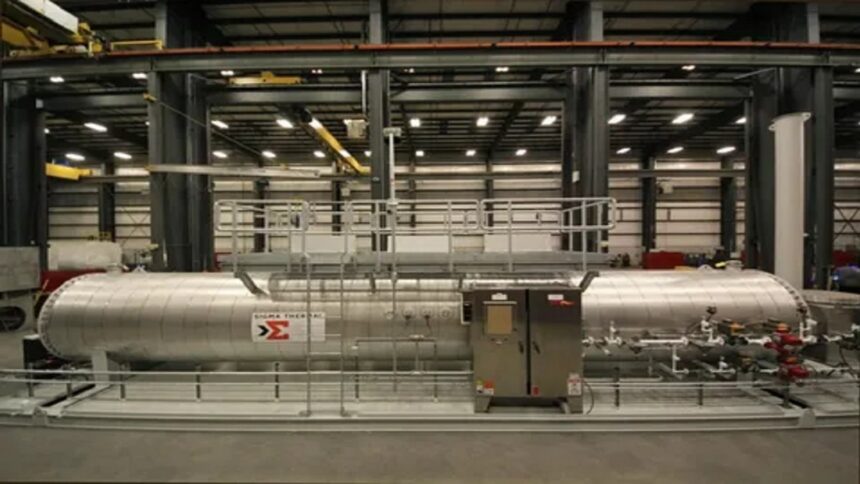How Glycol Systems Provide Efficient Heating Solutions
Glycol systems are commonly used in various applications, such as heating and cooling. Many people wonder if these systems can be heated and if they work well in warming environments. The answer is yes—glycol systems can be used to transfer heat efficiently. This is crucial in areas where freezing temperatures can harm traditional heating systems. Understanding how these systems work and their benefits can help you decide if a glycol heating system is the right choice for your needs.
In this article, we’ll explore how glycol systems are heated, the benefits they offer, and when it’s best to use them. If you’re thinking of a new glycol chiller or need glycol system repair Denver, knowing how heated glycol systems work can help.
What Is A Glycol System?
A glycol system uses a type of liquid called glycol to transfer heat or cool spaces. Glycol is a chemical that comes in two main types: ethylene glycol and propylene glycol. These liquids are mixed with water to create a solution that can handle extreme temperatures.
- Ethylene Glycol: This is used mostly in industrial settings because it transfers heat very well. However, it can be toxic if ingested, so it’s not ideal for places where people or animals could come in contact with it.
- Propylene Glycol: This type is safer and non-toxic, making it a better choice for places like homes or food-processing facilities.
Glycol is used in many systems like HVAC units, refrigerators, and even radiant floor heating. One of the biggest reasons glycol is used is because it can handle very cold temperatures without freezing. But can it also be used in heated systems? Let’s find out!
How Glycol Systems Work In Heating Applications
In heating applications, glycol works as a liquid that moves heat from one place to another. This is called heat transfer, and it happens when glycol is heated and circulated through pipes. The glycol heats up, travels through the system, and warms the surrounding air or surfaces.
Here’s How It Works:
- Glycol is heated to a certain temperature in a boiler or heating unit.
- Once it reaches the right temperature, the hot glycol moves through pipes and radiators, giving off heat as it travels.
- Because glycol doesn’t freeze, it’s perfect for use in cold climates where traditional heating systems might fail.
A major advantage of using glycol is that it keeps the system running smoothly even when outdoor temperatures drop. For example, if you have a glycol chiller, it will work all winter without freezing. This will ensure even heat distribution.
Benefits Of Using Heated Glycol Systems
There are many reasons to use glycol systems in heating, especially in industrial and commercial spaces. Here are some of the biggest benefits:
Prevents Freezing
One of the primary reasons people use glycol systems is that they stop pipes and other equipment from freezing. In very cold winter areas, a glycol chiller service can keep your system running. It will prevent freeze-related issues.
Efficient Heat Transfer
Glycol transfers heat more effectively than plain water, especially over long distances. A glycol heating system can efficiently move heat. It is useful for heating a large space or transporting heat between areas.
Protection Against Corrosion
When you mix glycol with water, it also helps protect your system from corrosion. Pipes, radiators, and other metal components can wear down over time, but glycol slows this process down. By reducing corrosion, the system lasts longer and works more efficiently.
Reduced Maintenance
Glycol prevents freezing and corrosion. So, it cuts maintenance needs. This means fewer repairs and lower overall costs for keeping your heating system in good condition. If you ever need help, companies like Teamworks Mechanical can provide glycol system repair Denver services to keep your system running smoothly.
Challenges Of Heating Glycol Systems
While glycol systems have many advantages, they also come with some challenges. If not properly maintained, glycol can degrade over time, causing problems. Here are some challenges to watch out for:
Overheating
Glycol can break down if it’s heated too much. When this happens, the glycol may lose its ability to transfer heat, and the system can become less efficient. It’s important to maintain the right temperature range for your glycol system to avoid overheating.
Incorrect Mixture
The mixture of glycol and water must be correct. If there’s too much glycol, the solution may become too thick, making it harder to move through pipes. If there’s too little glycol, the system might not have enough freeze protection. Typically, the glycol concentration should be between 30% to 50%, depending on the system’s needs.
Boiling Issues
If the glycol mixture boils, it can create bubbles in the system. These air pockets reduce the system’s ability to transfer heat efficiently. That’s why regular maintenance is key to making sure the system is operating at peak performance. Teamworks Mechanical offers maintenance services to ensure your system stays in top shape.
Regular Maintenance Needed
Even though glycol systems are efficient, they require regular upkeep to avoid issues. Checking the glycol concentration and testing for signs of degradation should be done regularly. If any problems arise, getting professional glycol chiller service can help fix the issue before it becomes serious.
When To Use Glycol Heating Systems
Glycol heating systems aren’t needed in all situations. But, they can be very useful in some environments. Here are some situations where you should consider using a glycol system:
Cold Climates
Glycol is essential for heating systems in freezing temperatures. It prevents freezing and keeps heat moving efficiently, even in the coldest conditions.
Industrial Applications
In industry, glycol systems are better than water-based ones for long-distance heat transfer. They can handle the extreme conditions often found in factories or processing plants.
Radiant Floor Heating
Glycol is also used in radiant floor heating systems, where pipes beneath the floor circulate hot liquid to warm the space. These systems provide consistent heat without the risk of freezing in colder months.
HVAC Systems
Many HVAC systems use glycol to prevent freezing in their heat exchangers. Glycol helps these systems work more effectively by ensuring smooth heat transfer.
In some cases, you might even need both a glycol heating and cooling system, like in certain refrigeration setups. If you’re unsure if your system needs heating, glycol chiller installation can help.
Consult Glycol Chiller Service Experts For Optimal System Performance
Glycol systems are ideal for heating, especially in freezing conditions. With the right glycol level and regular maintenance, they provide efficient heat over long distances. They also protect against freezing and corrosion, reducing repair costs.
However, it’s important to be aware of the potential challenges, such as overheating or incorrect glycol mixtures. To avoid these problems, regular checks and services are crucial. Consider Teamworks Mechanical and Denver glycol system repair experts.
Glycol heating systems are efficient and beneficial for homes and industries. If you’re thinking of installing one or need maintenance, consult a glycol chiller service expert for the best outcome.







